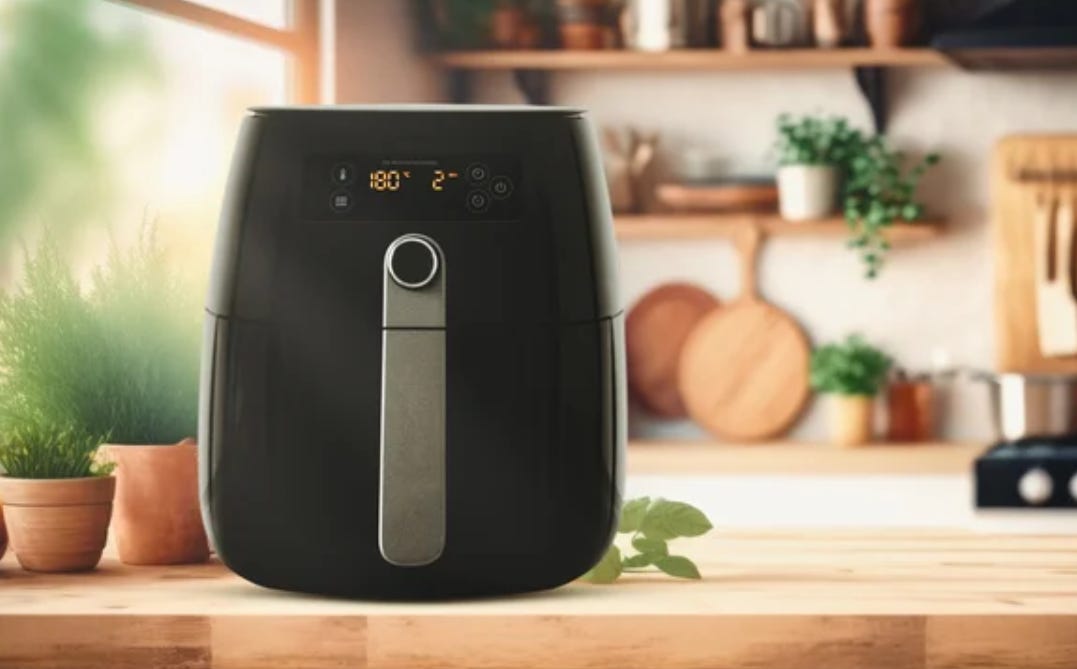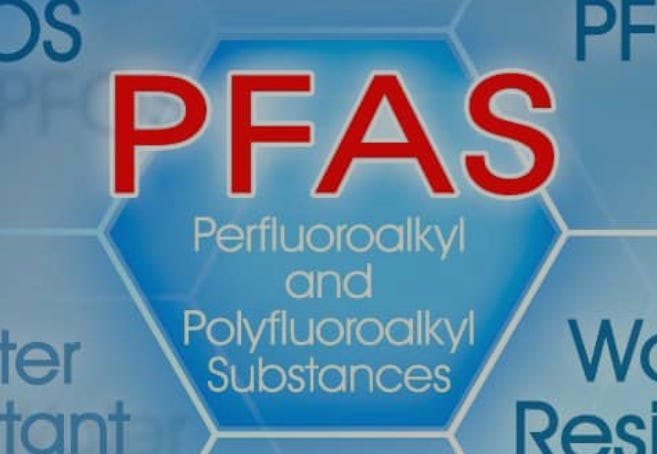Forever Chemicals (PFAS) In Air Fryers
Air fryers have gained popularity in recent years, touted as a healthier and more convenient alternative to traditional deep frying methods. However, recent studies suggest that these kitchen appliances may pose health risks due to the presence of per- and polyfluoroalkyl substances (PFAS), also known as "forever chemicals."
PFAS Are Dangerous
PFAS are a group of human-made chemicals commonly used in non-stick cookware, stain-resistant fabrics, and fire-retardant materials. Due to their strong carbon-fluorine bonds, PFAS are highly resistant to degradation, earning them the nickname "forever chemicals." PFAS can accumulate in the environment and human body over time.
The Centers for Disease Control (CDC) have found that high levels of PFAS may lead to increased cholesterol levels, risk of kidney or testicular cancers, decreased fertility and infant birth weights, weakened immune systems, and developmental delays in children.
PFAS in Air Fryers
When you hear “non-stick” it’s typically referring to food contact surfaces that have been coated with perfluorinated chemicals or PFAS. These synthetic chemicals promise an edge with easy cleanup, stain and grease resistance type of surface tray.
Sounds great until you find out how incredibly toxic to humans they are. When air fryers are heated, PFAS can potentially leach into food, leading to direct ingestion of these harmful chemicals.
Minimizing Exposure
Choose Safer Alternatives: When exploring non-toxic air fryers, the focus should be on the materials. Ceramic or stainless steel cooking surfaces don’t contain PFAS. Stainless steel is durable, resistant to scratching, and doesn’t release harmful substances when heated. Ceramic-coated air fryers offer a non-stick surface without the chemicals associated with Teflon.
Don’t Cook At High Temperatures: If you’re going to keep your non-stick air fryer, keep this in mind: Evidence suggests an increased risk of these 'forever chemicals' leaching into your food with high temperatures, so avoid cooking foods above 400° F (204°C).
Check For Damaged Non-Stick Coating. If there are any signs of peeling or scratching, your air fryer is more prone to releasing these harmful chemicals.
Use Better Utensils: You can help prevent your non-stick coating from peeling or scratching by using wooden or silicone utensils and avoiding any abrasive sponges.
Use Parchment Paper: Line the air fryer basket with unbleached parchment paper to create a barrier between the food and the cooking surface.
Do Non-Toxic Air Fryers Exist?
While ceramic or stainless steel materials are generally safer than the PFAS-laden coatings found in many air fryers, concerns about ceramic-coated air fryers are also emerging.
Ceramic non-stick coatings often involve nanotechnology, where the long-term health implications are not fully understood. The proprietary nature of these coatings makes it difficult to assess potential risks. Some titanium dioxide nanoparticles have been linked to precancerous gut lesions as well as immune disruption.
And nanoparticles have been shown to accumulate in organs, raising concerns about their safety.
The technology is fairly new, so the long-term implications are pretty much unknown. While the current evidence is insufficient, there's at least enough to warrant concern.
Phthalate-Coated Food Contact Surfaces - One common “non-PFAS” non-stick coating is called phthalates. Brands marketed as “free from PFAS” may use phthalates as a non-stick coating. These are hormone-disrupting chemicals that are linked to a host of “serious health issues.”
Aluminum Food Contact Surfaces - Aluminum (especially when uncoated), has the potential to leach aluminum into your food. It is bioaccumulative and a known neurotoxin that can cause neurological disorders like dementia. Aluminum can also cause slow growth in children, speech problems, seizures, and eventual system toxicity that causes serious problems including anemia, nervous system trouble, and bone and brain diseases.
Personally, I would stick with a stainless steel option. Check out this link for the best air fryer options - Mammavation.com
Conclusion
While air fryers offer a convenient and seemingly healthier cooking method, the potential presence of PFAS should not be overlooked. You should be aware of the risks associated with these harmful chemicals and take necessary precautions to minimize exposure.
Upgrading your air fryer to stainless steel or avoiding excessively high temperatures can reduce exposure to BPAS, PFOAS, and PFAS without sacrificing your convenience.
Your presence here is greatly valued. If you've found the content interesting and useful, please consider supporting it through a paid subscription. While all our resources are freely available, your subscription plays a vital role. It helps to cover some operational costs and supports the continuation of this independent, unbiased research and journalism work. Please make full use of our free library.
If shy about commitments, feel free to leave a one-time tip!






